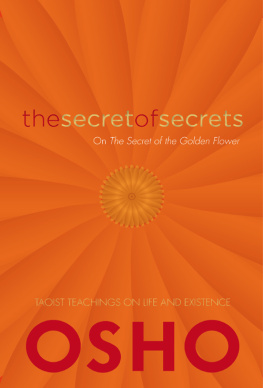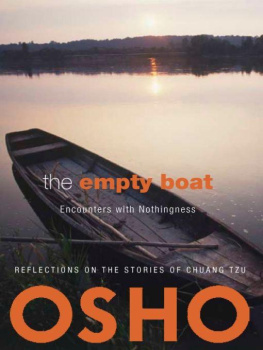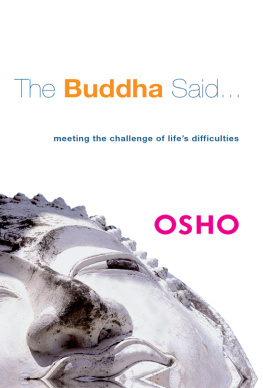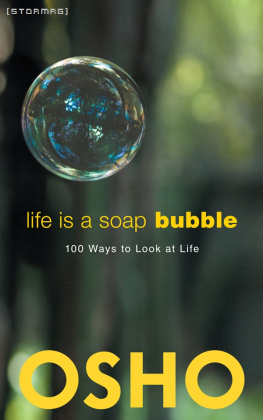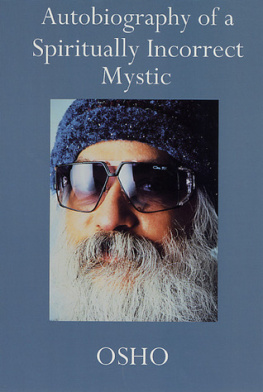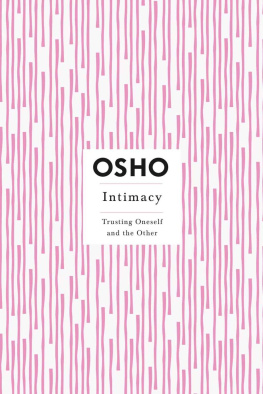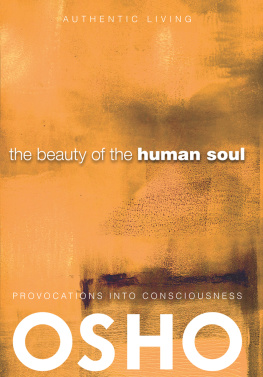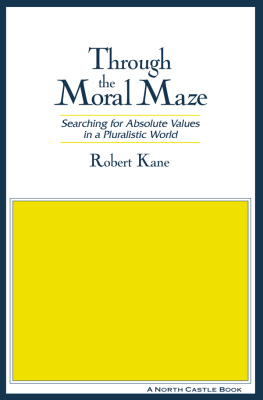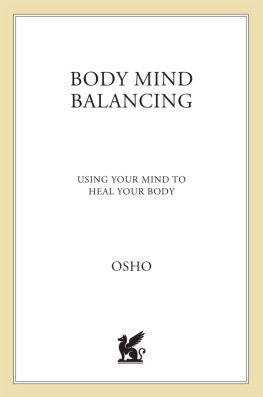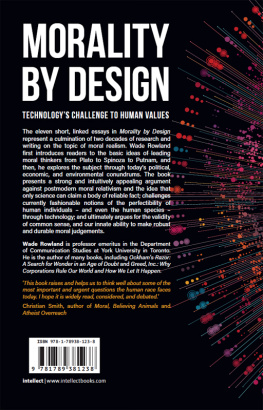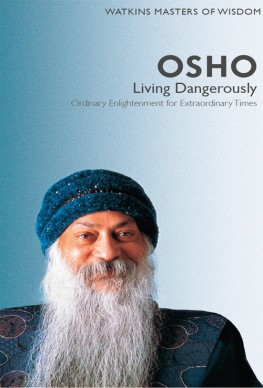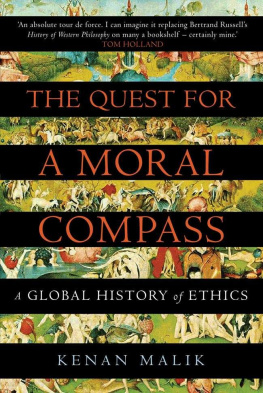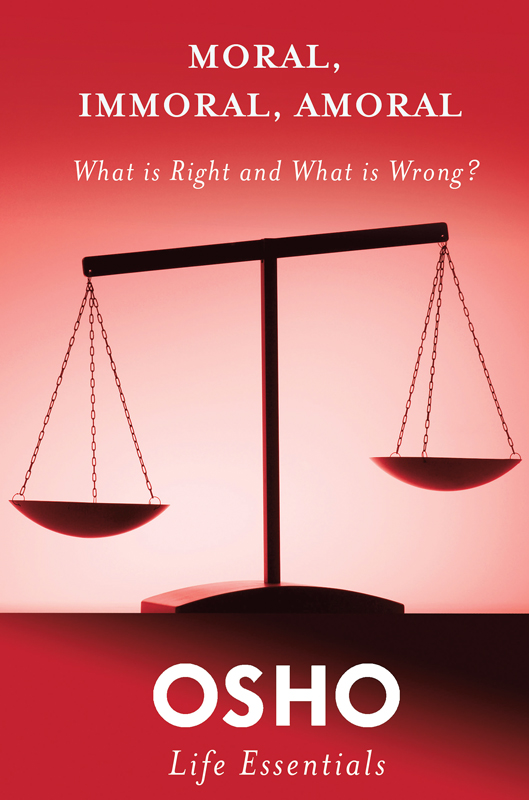
The author and publisher have provided this e-book to you for your personal use only. You may not make this e-book publicly available in any way. Copyright infringement is against the law. If you believe the copy of this e-book you are reading infringes on the authors copyright, please notify the publisher at: us.macmillanusa.com/piracy.
Contents
Please talk about morality
Dont people need a certain code of conduct? And isnt a moral character necessary for a spiritual life?
Are you against even the effort to cultivate a moral character?
In your vision of religiousness, is there such a thing as sin?
Does God exist? How can there be so much evil and corruption in the world if God exists?
I have tried my whole life to live a religious life, but then why am I still miserable?
Can Buddha or Christ be created or developed out of every common human being? Or is Buddha or Christ only born as such? Every person is Buddha, every person is ChristI feel it is not true
You have spoken of awareness and consciousness and it seems as though you are saying this is all that is needed to guide ones actions. Does this mean, then, that murder, rape, and theft are only wrong insofar as they are done without awareness, without consciousness?
Doesnt anything or anyone need correction? Im confused
Until the Jews and Arabs and other tribes brought their racially exclusive and jealous God to the West, Toamy, Bacchus, Mithros, and Apollo were the gods that man worshipped. Diana had her bow and arrow, Thor was in the north, the Mother Goddess was worshipped in the West. And then death and resurrection became the religion of the West. Guilt and sin were taught. Why is Adam a sinner? Why isnt he like Theseus or Jason or Hermes? Is the concept of sin just a trick to make people meditate?
You say, Do not make the same mistake twice. How can I keep from doing that unless I bring the mind in to evaluate, compare, and judge?
What is true repentance?
Rudolph Hess, one of the last Nazi big shots, committed suicide in jail in Berlin, where he was imprisoned for forty-six years. He was the right-hand man of Adolf Hitler. I dont repent anything, he said before the court in Nuremburg, and if I could start from the very beginning, I would do the same thing again. Osho, can you say something about forgiveness, even for people who seem to be unworthy of it?
Please explain right-mindfulness. I have heard you say it is not a goal or something to practice. Then what is it?
Raised by a father who was perfectionistic, outwardly nonjudgmental, and inwardly hypercritical of everything and everyone, I now see my conditioning as very much operating at cross purposes. I was criticized for being judgmental and opinionated, yet urged to be discriminating. Now I feel that something in my intelligence is blocked, impaired, hesitant, and afraid. Even in the community around you, I have been repeatedly criticized for being judgmental when often I felt my statements were relevant and valid. What is the difference between judgment, discrimination, and true clarity? And how is a child, or a forty-three-year-old man, to tell the difference?
You have said that right and wrong are determined by each society. Is there no universal right and wrong?
Should there be a difference in moral and legal standards in the matter of declaring a person guilty of a crime?
One day a man met a rabbi on the street. In an attempt to torment him, he asked him to express the entire philosophy of Judaism while he stood on one foot. The rabbi stood on one foot and said, Do unto others as you would have them do unto you. That is the lawthe rest is commentary. If I were to be met by a tormentor and asked to stand on one foot and explain in one sentence what your teaching is, would I be correct in saying that it is freedom from suppression?
Introduction
Man can live in two ways: either he can live according to the dictates of othersthe puritans, the moralistsor he can live according to his own light. It is easy to follow others, it is convenient and comfortable, because when you follow others they feel very good and happy with you.
Your parents will be happy if you follow their ideas, although their ideas are absolutely worthless because their ideas have not made their lives illumined, and it is so apparent. They have lived in misery, still they want to impose their ideas on the children. They cannot see a simple fact: that their life has been a failure, that their life has not been creative, that their life has never tasted of bliss, that they have not been able to discover truth. They have not known the splendor of existence, they have no idea what it is all about. Still, their egos insist that the children should be obedient; they should follow their dictates. The Hindu parents will force the child to become a Hindu, and they will not even think for a single moment what has happened to them. They have followed those same ideas their whole life and their life is empty; nothing has flowered. But they enjoy the idea that their children are obedient and they are following them. They have lived in misery, in hell, and their children will live in misery and hell, but they think they love their children. With all good intentions they destroy the future of their children.
The politicians try in every possible way that the society should live according to their ideas, and of course they pretend to others and to themselves that they are doing public service. All that they are doing is destroying the freedom of people. They are trying to enforce certain superstitions that were enforced on them by their parents, by their leaders, by their priests.
The politicians, the priests, the pedagogues, they are all trying to create a false humanity; they are creating insincere human beings. They may not have intended to do so, but thats what has happened. And a tree is to be judged by fruits; it does not matter what was the intention of the gardener. If he was sowing weed seeds and hoping, intending, desiring that roses will grow just because of his good intentions, roses are not going to come out of the weeds. He has destroyed the whole field. To impose a certain structure of character on anybody is to make him insincere, is to make him a hypocrite.
Sincerity means to live according to your own light. Hence the first requirement of being sincere is to be meditative. The first thing is not to be moral, is not to be good, is not to be virtuous: the most important thing is to be meditativeso that you can find a little light within yourself and then start living according to that light. And as you live, it grows and it gives you a deep integrity. Because it comes from your own innermost being, there is no division.
When somebody says to you, Do it, it should be done, naturally it creates a division in you. You dont want to do it, you wanted to do something else. But somebodythe parents, the politicians, the priests, those who are in powerwants you to follow a certain route. You never wanted to follow it, so you will follow it unwillingly. Your heart will not be in it, you will not be committed to it, you will not have any involvement with it. You will go through it like a slave. It is not your choice, it is not out of your freedom.
Sincerity means not living a double lifeand almost everybody is living a double life. He says one thing, he thinks something else. He never says that which he thinks; he says that which is convenient and comfortable, he says that which will be approved, accepted. He says that which is expected by others. Now what he says and what he thinks become two different worlds. He says one thing, he goes on doing something else, and then naturally he has to hide it. He cannot expose himself because then the contradiction will be found; then he will be in trouble. He talks about beautiful things and lives an ugly life.


